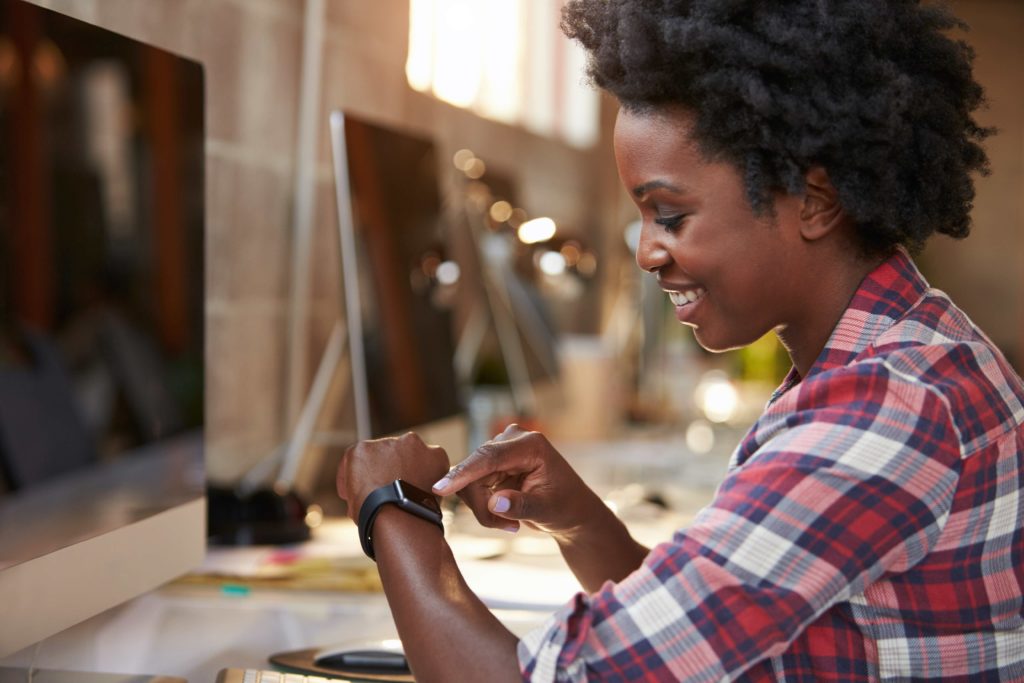Key Insights
- New data suggests COVID-19 will lead to increased sales of wearable devices.
- University researchers are developing wearables to specifically detect symptoms of COVID-19 and monitor patients with the virus.
- This trend, while promising, highlights the need to protect patient privacy, autonomy, and health information.
Report: Wearable Sales to Skyrocket Under COVID-19
A recent report from ABI Research predicts that the COVID-19 pandemic will increase sales of wearables by 29 percent, which translates to 30 million shipments of the devices this year. Wearables, such as a Fitbit or Apple Watch, collect data on “connected blood pressure monitors, continuous glucose monitors, pulse oximeters, and electrocardiogram monitors.” These devices may even alert providers if a patient’s condition worsens.
“[Monitoring symptoms] becomes particularly important when the number of hospital beds is limited, and so many patients are being sent home, ensuring that the seriously ill are cared for in a hospital while the less ill are still monitored when at home,” said Stephanie Tomsett, Wearables Analyst at ABI Research. The ability to monitor patients using real-time data can not only improve health outcomes, but also limit providers and other patients’ exposure to the illness.
Promising Discoveries, Higher Demand for Wearables
As part of the effort to fight COVID-19 using wearables, researchers at Northwestern University announced a “novel wearable device and are creating a set of data algorithms specifically tailored to catch early signs and symptoms associated with COVID-19 and to monitor patients as the illness progresses.” This technology “produces continuous streams of data and uses artificial intelligence to uncover subtle, but potentially life-saving, insights.” Similarly, Stanford Medicine researchers are collaborating with Fitbit and Scripps Research “to detect early signs of viral infection through data from smartwatches and other wearable devices.”
Additionally, the US Army is requesting bids for a $25 million contract “to develop wearable sensors to detect early symptoms of coronavirus,” CNN reports. The Army’s request for proposal (RFP) states, “There is a dire and urgent need for [the] development of rapid, accurate wearable diagnostics to identify and isolate pre-symptomatic COVID-19 cases and track/prevent the spread of the virus.”
Understanding the Ethics of Wearables
However, there are controversies associated with the proliferation of wearable devices. Lisa Eckenwiler, Ph.D., Associate Professor of Philosophy and Health Administration and Policy at George Mason University, notes that these devices could lead to an overreach in patients’ health information. Given the tremendous and detailed data these devices could access, it’s vital that health information is secure.
“There are questions about how much patients are aware that their data would be used for … purposes not for their own particular health. We might be worried about the privacy implications,” Eckenwiler notes. To protect patients’ privacy, she believes in a system of “informed voluntary consent,” which helps “to respect and try to promote — as best we can — patient autonomy.”
Important Takeaways for Providers
COVID-19 has expanded the market for — and accelerated the development of — wearable devices. This progress is projected to continue after the pandemic ends. While policymakers navigate the ethics of these devices and researchers pioneer novel uses and capabilities, providers must stay informed of these exciting discoveries as more tools become available to remotely monitor patients and improve health outcomes.










Related Articles
How to Keep Your Patients From Skipping Mammograms
Kristin Schraa, MD, with Virginia Women’s Center shares how women’s health providers can encourage patients ...
3 Ways Healthcare Can Integrate Behavioral Health and Primary Care
Integrating behavioral health with primary care can lead to better patient outcomes — but how ...
How Can Physicians Support Postpartum Mental Health?
On average, 13 percent of mothers in the United States will develop symptoms of postpartum ...
Engaging Patients in Annual Mammograms
Studies show that a little over 66 percent of women aged 40 and older get ...
What Do Medicare-Aged Patients Want in Their Healthcare?
Within the next 20 years, 20 percent of Americans will be 65 or older. It ...
How Health Systems Grow Stronger With Privia Health
Discover how we helped Health First upgrade technology, align physicians, and accelerate toward value-based care. ...